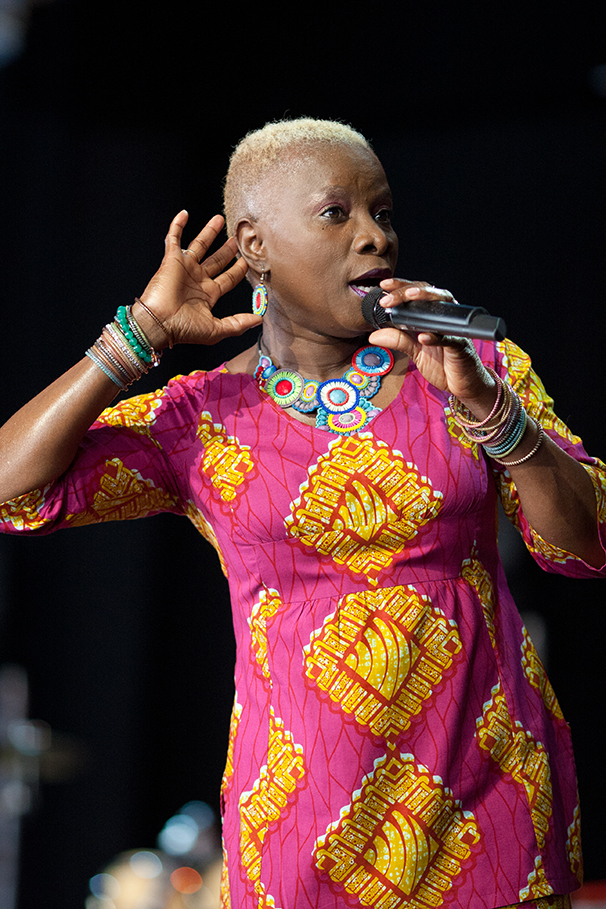
World music singer-songwriter and human rights activist Angélique Kidjo’s new album “Eve,” released Jan. 28, is a brilliant collection of genre-blending songs rooted in the music of her native Benin, Africa.
Over a 32-year vocal career, Kidjo has performed with Philip Glass, Questlove, Alicia Keys, Dave Matthews and Branford Marsalis, among many others, but has set her sights higher than just participating in the entertainment business.
The liner notes of “Eve” ask listeners to support Kidjo’s big three foundations: her own Batonga Foundation for Girls Education, as well as UNICEF and Oxfam. Even former President Bill Clinton commended Kidjo for her “music and activism” on the back of her new memoir, “Spirit Rising: My Life, My Music.”
“Eve” weaves together eight African women’s choirs seamlessly and strikingly. The first track “M’Baamba (Kenyan Song)” showcases Kidjo’s soaring vocals atop a call and response chant from Kenyan choir Merti Samburu. These are accompanied by Bernie Worrell’s gentle organ playing, lively rhythmic composition and smooth Beninese guitar picking courtesy of Lionel Loueke.
But “Eve” continues to deliver highlights past its first track. “Shango Wa” is a fast tempo Afrobeat venture with fantastic bass from Christian McBride. “Eva” is a rhythmic tune punctuated by electronic synthesizer and featuring Nigerian vocalist Asa, whose bluesy voice nicely harmonizes in English with Kidjo’s rich Yoruba dialect performance.
Interspersed in the album are three vocal interlude tracks — “Agbade,” “Kletedjan” and “Wayi” — performed by choirs from across Africa.
Casual fans of world music may find a familiar voice in “Bomba,” which features Vampire Weekend guitarist Rostam Batmanglij. It is not a stretch to find Batmanglij on the track because Vampire Weekend’s tracks often feature an Afropop influence. “Bomba” is a celebratory call-and-response number and some of the track’s elements could certainly find space in a new Vampire Weekend song.
The album, while spanning several genres, never loses sight of Kidjo’s central identity. She is well known for her fierce independence, often suggesting and confirming her ability to speak for herself, both in her activist work and in the music industry.
And on “Eve” Angelique Kidjo does just that.
In a music industry characterized by generic and sexist pop music, Kidjo sonically breaks the mold.
Even if you do not speak French, Fon, Yoruba or any of the other African languages featured in “Eve,” the album will inspire you to hum and dance along.
A version of this article appeared in the Feb 12 print edition. Hayley Sadoff is a contributing writer. Email her at [email protected].






















































































































































